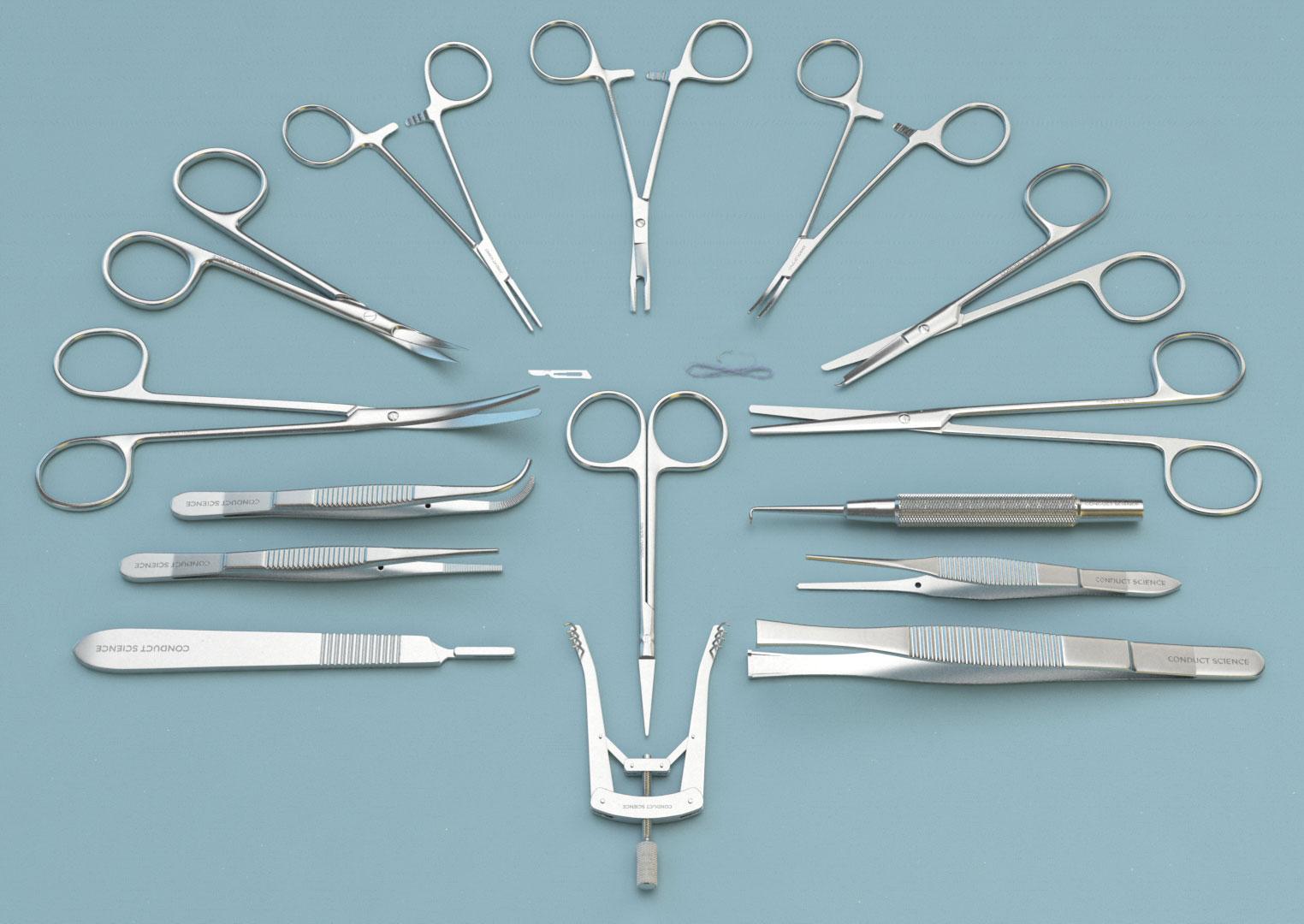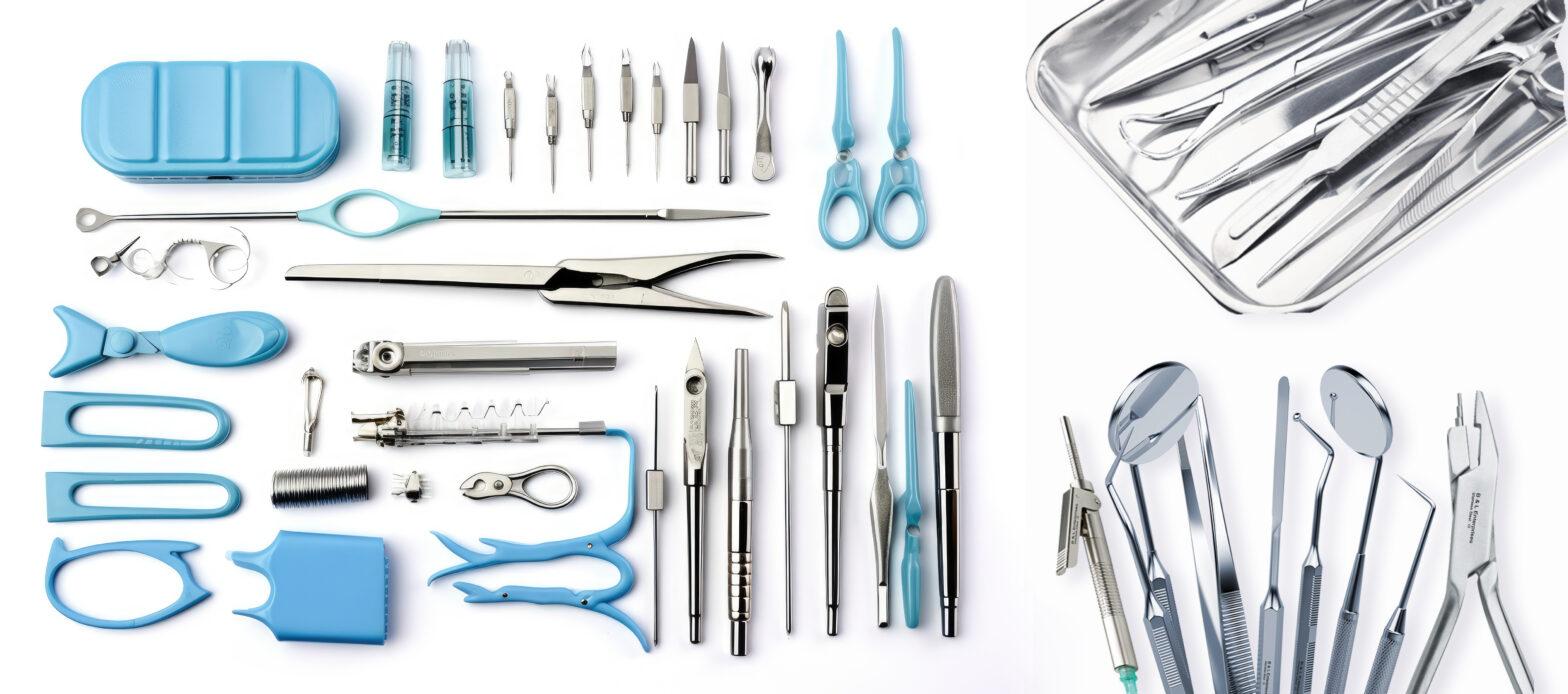Introduction: The Importance of Surgical Instruments in Healthcare
Surgical instruments play a critical role in the medical field, enabling healthcare professionals to perform a wide variety of procedures with precision and efficiency. Whether it’s for diagnostic, therapeutic, or corrective purposes, these instruments are designed to ensure the safety and well-being of patients undergoing surgery.
In this article, we will explore the different types of surgical instruments, the companies that manufacture them, and why selecting the right surgical instruments is essential for successful medical outcomes. You'll also gain insights into the materials used, specifically stainless steel, and why it's the go-to choice for surgical tools. Let's dive into the fascinating world of surgical instruments and their manufacturers.
What Are Surgical Instruments?
Definition and Purpose
Surgical instruments are specialized tools used by surgeons during operations or procedures. These tools help to cut, grasp, hold, dissect, and suture tissues, among other functions. They come in various shapes, sizes, and designs to perform specific tasks, and are critical to the success of any surgical procedure.
Categories of Surgical Instruments
Surgical instruments can be broadly categorized into several types, each designed to perform specific tasks. These include:
- Cutting and Dissecting Instruments: These tools, like scalpels and scissors, are used to cut or dissect tissue during surgery.
- Grasping and Holding Instruments: Forceps and clamps are used to hold tissues or organs during a surgical procedure.
- Suturing Instruments: Surgical needles and needle holders are used to close incisions and wounds.
- Retracting Instruments: These instruments, such as retractors, hold back tissues for better visibility during surgery.
Types of Surgical Instruments
General Surgery Instruments
General surgery instruments are used in a wide variety of medical fields and are indispensable in basic surgical procedures. Common examples include scalpels, scissors, forceps, and retractors. These instruments are designed to handle soft tissue and perform essential tasks such as cutting, suturing, and holding organs during an operation.
Specialized Surgical Tools
Beyond general instruments, there are more specialized tools designed for specific surgeries. For example:
- Orthopedic Instruments: Tools used in bone-related surgeries, such as bone saws and drills.
- Neurosurgery Instruments: These include delicate tools like micro-scissors and forceps designed for brain and spinal surgeries.
- Ophthalmic Instruments: Specialized tools used for eye surgeries, such as cataract removal or corneal transplants.
The Importance of Material: Stainless Steel in Surgical Instruments
Why Stainless Steel?
Stainless steel is the preferred material for surgical instruments because it offers exceptional strength, durability, and resistance to corrosion. These properties are essential for tools that are used in sterile environments and need to be reliable during long, demanding procedures.
Benefits of Stainless Steel in Surgery
- Corrosion Resistance: Stainless steel resists rust and degradation, making it ideal for instruments that come into contact with bodily fluids and need regular sterilization.
- Durability: It can withstand the mechanical stresses of surgery without warping, bending, or breaking.
- Biocompatibility: Stainless steel is safe for the human body and does not react with bodily tissues, reducing the risk of complications during surgery.
Top Surgical Instruments Companies and Manufacturers
Leading Surgical Instruments Manufacturers
Some of the top surgical instruments manufacturers that have built their reputation on producing high-quality, reliable, and precise tools include:
- Medtronic: A leading global healthcare solutions provider known for its advanced surgical instruments.
- Johnson & Johnson: A major player in the medical device market, known for its vast range of surgical tools and equipment.
- B. Braun: A well-regarded manufacturer specializing in various surgical instruments for general surgery, as well as specialized fields.
Key Players in Surgical Tools Manufacturing
The global surgical instruments market is dominated by both large corporations and niche manufacturers. These companies produce a wide range of tools, from general surgery instruments to highly specialized tools used in advanced procedures like robotic surgery. Innovations in surgical instruments, such as the integration of smart technologies and precision engineering, have set these manufacturers apart.
How Surgical Instruments Are Made
Manufacturing Process Overview
The production of surgical instruments is a highly precise and regulated process. It involves several stages, from designing the tool to manufacturing, quality assurance, and packaging. The general process includes:
- Design and Prototyping: Engineers create prototypes of the instruments, ensuring that they meet surgical requirements.
- Material Selection: High-quality materials, such as stainless steel, are selected for their strength and corrosion resistance.
- Manufacturing: The instruments are fabricated through various processes like forging, machining, and polishing.
- Sterilization and Packaging: After manufacturing, the tools undergo rigorous sterilization procedures before being packaged for distribution.
Quality Control in Surgical Instrument Production
Manufacturers must adhere to strict quality control standards to ensure that every instrument performs as intended. Quality checks involve testing for sharpness, strength, ergonomics, and precision. Regulatory bodies like the FDA and ISO set the standards for surgical tools to ensure patient safety.

Choosing the Right Surgical Instruments for Different Procedures
Factors to Consider When Selecting Instruments
When choosing surgical instruments, medical professionals must consider the following factors:
- Type of Surgery: The nature of the surgery (general, orthopedic, neurosurgery) dictates the type of instruments needed.
- Precision and Durability: Instruments must be able to withstand pressure and stress during use while maintaining their sharpness.
- Ergonomics: Surgeons need instruments that are easy to handle and comfortable to use over long periods.
Tools for Common Surgeries
For general surgeries, instruments like scalpels, scissors, and forceps are often sufficient. However, for more complex surgeries like joint replacements or brain surgery, specialized tools are needed to ensure precision and accuracy.
Global Trends in Surgical Instrument Technology
Innovations in Surgical Instrumentation
The field of surgical instruments has seen numerous advancements, particularly in terms of technology. One notable innovation is the rise of robotic-assisted surgery, which relies on specialized instruments that work with robotic arms to perform highly precise operations. Additionally, 3D printing has opened new possibilities in custom-made surgical tools and implants.
Future of Surgery: Robotic Tools and Beyond
The future of surgical instruments is increasingly tech-driven. Robotic surgery, augmented reality for enhanced visualization, and artificial intelligence (AI) are changing how surgeries are performed, making them less invasive and more efficient.
Surgical Instruments Suppliers: Connecting the Dots
How Surgical Instruments Suppliers Support the Healthcare Industry
Surgical instruments suppliers play a crucial role in ensuring that hospitals and surgical centers have access to the tools they need. They act as intermediaries between manufacturers and healthcare institutions, providing a steady supply of surgical instruments.
Notable Suppliers in the Market
Some of the notable surgical instrument suppliers include:
- Surgical Instruments Company: Known for its wide range of high-quality tools.
- MediTech: A major supplier of stainless steel surgical instruments globally.
Benefits and Drawbacks of Different Surgical Instruments
Advantages and Limitations of Specific Instruments
Each surgical instrument has its own advantages and limitations. For instance, while stainless steel instruments offer great durability and corrosion resistance, they can be heavier compared to titanium instruments. Similarly, robotic-assisted tools provide great precision but can be costly and require specialized training to use effectively.
Cost Considerations for Medical Professionals
The cost of surgical instruments can vary widely depending on the material, complexity, and brand. While high-end instruments may offer superior performance, they often come at a higher price point. Medical professionals must balance the quality of tools with budgetary constraints to ensure the best care for their patients.
FAQs: Surgical Instruments Explained
- What are the most commonly used surgical instruments?
- Scalpels, scissors, forceps, and clamps are among the most commonly used surgical instruments in general surgeries.
- Stainless steel is strong, corrosion-resistant, and biocompatible, making it ideal for surgical tools that must withstand harsh conditions.
- Robotic instruments work by being controlled remotely by a surgeon, offering enhanced precision and the ability to perform minimally invasive procedures.
- Yes, surgical instruments are often sterilized and reused. However, they must be carefully inspected to ensure they remain sharp and functional.
- The type of surgery, the instrument’s material, and its ergonomic design are all important factors to consider when selecting surgical instruments.
- The future lies in innovations such as robotic surgery, 3D-printed instruments, and AI-driven tools that promise to make surgeries safer and more precise.
Conclusion: The Future of Surgical Instruments
Surgical instruments are indispensable to the practice of modern medicine. Whether they are general surgery instruments, specialized tools for specific procedures, or advanced robotic instruments, the selection of high-quality tools can make all the difference in the success of a surgery. As the field continues to evolve with advancements in materials and technology, surgical instruments will remain at the heart of life-saving procedures.
For healthcare professionals, it's essential to stay informed about the latest developments and ensure they are using the best tools available for each procedure. Engage with reliable surgical instruments suppliers and manufacturers to ensure your practice has the right equipment for optimal patient outcomes.
Call to Action
Feel free to share your thoughts on surgical instruments and advancements in the healthcare sector! Don't hesitate to share this article with others in the medical field and stay updated with the latest trends in surgical tools.

